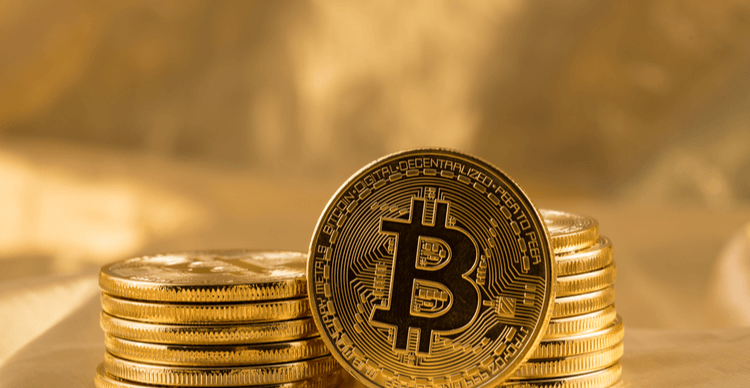The decentralized finance (DeFi) revolution has emerged as a disruptive force that promises to revolutionize traditional financial systems. By leveraging blockchain technology and cryptocurrencies, DeFi offers a decentralized, transparent, and inclusive alternative to traditional banking and finance. In this article, we will explore the revolutionary impact of the decentralized finance revolution, highlighting its ability to disrupt traditional financial systems, empower individuals with financial freedom, redefine access to financial services, ensure transparency and security, and drive economic empowerment. We will also delve into the rise of DeFi crypto, the contribution of projects like Pollux DeFi, the role of DeFi coins, potential applications of DeFi, challenges and opportunities for decentralized finance, and the future of this transformative movement.
Understanding Decentralized Finance (DeFi)
Decentralized finance, or DeFi, refers to the use of blockchain technology and cryptocurrencies to create open, transparent, and permissionless financial systems. Unlike traditional financial systems that rely on centralized intermediaries, DeFi operates on decentralized networks, enabling direct peer-to-peer transactions and financial activities. Smart contracts, powered by blockchain technology, automate and enforce the execution of financial agreements without the need for intermediaries. DeFi aims to eliminate barriers, provide financial services to the unbanked and underbanked, and enable individuals to have full control over their funds.
The Disruption of Traditional Financial Systems
The decentralized finance revolution is disrupting traditional financial systems in significant ways. Traditional financial systems are often characterized by centralized control, lack of transparency, limited access, and high barriers to entry. DeFi challenges these norms by offering a decentralized, transparent, and inclusive financial ecosystem. It provides an alternative to traditional banking and finance, reducing the reliance on intermediaries and offering direct control over funds and financial decisions. The decentralized nature of DeFi also reduces the risk of manipulation, censorship, and systemic failures inherent in centralized systems.
Empowering Individuals with Financial Freedom
One of the most revolutionary aspects of the decentralized finance revolution is its ability to empower individuals with financial freedom. In traditional financial systems, individuals often face limitations imposed by banks and other intermediaries, such as restricted access to financial services, high fees, and limited control over funds. DeFi eliminates these limitations by enabling individuals to have full control over their funds, make financial decisions without intermediaries, and access a wide range of financial services directly. This empowers individuals to shape their financial future and participate in the global economy on their terms.
Redefining Access to Financial Services
Decentralized finance is redefining access to financial services by making them accessible to anyone with an internet connection. Traditional financial systems often exclude individuals who lack formal identification, reside in remote areas, or do not meet certain criteria set by banks. DeFi transcends these limitations by offering financial services to the unbanked and underbanked populations. Through DeFi platforms, individuals can access services such as lending, borrowing, trading, and investment opportunities without the need for a traditional banking relationship. This opens up financial possibilities for millions of people who were previously excluded from the traditional financial system.
Transparency and Security in Decentralized Finance
Transparency and security are fundamental pillars of the decentralized finance revolution. Traditional financial systems are often plagued by lack of transparency, opacity in fee structures, and vulnerabilities to fraud and hacking. DeFi, on the other hand, leverages blockchain technology to provide a transparent and tamper-proof record of all transactions. The decentralized nature of DeFi ensures that financial activities are recorded on a public ledger, visible to all participants. Additionally, the use of cryptography and smart contracts enhances the security of transactions, reducing the risk of fraud, manipulation, and unauthorized access to funds.
The Rise of DeFi Crypto
DeFi crypto tokens play a crucial role in the decentralized finance ecosystem. These tokens, such as Ethereum (ETH), Compound (COMP), and Aave (AAVE), serve as the native currencies within DeFi protocols. DeFi crypto tokens facilitate transactions, provide liquidity, and enable various financial activities within the DeFi ecosystem. Additionally, these tokens often serve as governance tokens, allowing holders to participate in the decision-making processes of DeFi protocols. The rise of DeFi crypto tokens has led to increased liquidity, incentivization of participation, and the emergence of a vibrant decentralized finance ecosystem.
Exploring Pollux DeFi and its Contribution
Pollux DeFi is an exemplary project within the DeFi space, making significant contributions to the decentralized finance revolution. With its innovative solutions and user-friendly platform, Pollux DeFi aims to provide decentralized lending and borrowing services, yield farming opportunities, and staking options for users. By leveraging blockchain technology, Pollux DeFi offers transparent and secure financial services, empowering individuals to maximize their earnings and actively participate in the decentralized finance revolution. Projects like Pollux DeFi are driving innovation and expanding the possibilities within the DeFi ecosystem.
The Role of DeFi Coins
DeFi coins, also known as governance tokens, play a vital role in decentralized finance. These tokens enable holders to participate in the governance of DeFi protocols, including voting on protocol upgrades, proposals, and community-driven decisions. DeFi coins also incentivize users to contribute to the ecosystem by providing rewards and benefits. Moreover, DeFi coins can be used for liquidity provision, staking, and earning passive income. Examples of DeFi coins include Compound (COMP), Aave (AAVE), and Uniswap (UNI), which have gained significant popularity and usage within the DeFi ecosystem.
The Power of Decentralized Governance
Decentralized governance is a transformative aspect of the decentralized finance revolution. In traditional financial systems, decision-making power is concentrated in the hands of centralized authorities, such as banks and regulatory bodies. DeFi disrupts this model by offering decentralized governance mechanisms that enable community-driven decision-making. Through voting and proposal systems, holders of governance tokens can actively participate in shaping the future of DeFi protocols. Decentralized governance ensures that decision-making power is distributed among the participants, fostering a sense of ownership and alignment of interests within the decentralized finance ecosystem.
Driving Economic Empowerment
The decentralized finance revolution has the potential to drive economic empowerment on a global scale. By eliminating barriers, such as geographical limitations and stringent eligibility criteria, DeFi enables individuals to access financial services, invest in digital assets, and participate in economic activities. This inclusivity promotes economic growth, reduces global economic disparities, and fosters financial independence. Moreover, DeFi empowers entrepreneurs by providing access to funding through decentralized lending and crowdfunding platforms, unlocking opportunities for innovation and economic advancement.
Potential Applications of DeFi
The potential applications of decentralized finance extend beyond traditional financial activities. DeFi can revolutionize sectors such as lending and borrowing, insurance, supply chain finance, remittances, and identity management. For example, DeFi lending platforms allow individuals to lend and borrow directly without intermediaries, reducing costs and expanding credit opportunities. Insurance products can be underwritten and managed through smart contracts, enhancing transparency and streamlining claim processes. Supply chain finance can be facilitated through decentralized networks, improving efficiency and reducing fraud. The programmability of DeFi enables innovative solutions across industries, unlocking new possibilities for businesses and individuals.
Challenges and Opportunities for Decentralized Finance
While the decentralized finance revolution holds immense potential, it also faces challenges that need to be addressed for widespread adoption. Regulatory frameworks are still evolving, and clear guidelines are necessary to ensure compliance and protect users. Scalability remains a concern, as blockchain networks need to handle increasing transaction volumes and maintain efficiency. User experience and interface design need to be improved to enhance accessibility and usability for mainstream users. Interoperability between different DeFi protocols and traditional financial systems is crucial for seamless integration. However, these challenges present opportunities for collaboration, innovation, and the maturation of the decentralized finance ecosystem.
The Future of the Decentralized Finance Revolution
The future of the decentralized finance revolution is filled with immense possibilities. As the technology matures, we can expect increased adoption, innovative financial products, and greater integration with traditional systems. The decentralized finance revolution has the potential to reshape the global financial landscape, democratize access to financial services, and empower individuals worldwide. Collaboration between regulators, industry participants, and innovators will play a vital role in shaping a sustainable and inclusive future for decentralized finance.
The decentralized finance revolution is transforming the financial landscape by offering a decentralized, transparent, and inclusive alternative to traditional systems. With its potential to disrupt traditional financial models, empower individuals with financial freedom, redefine access to financial services, ensure transparency and security, and drive economic empowerment, DeFi is revolutionizing the way we engage with finance. The rise of DeFi crypto, the contribution of projects like Pollux DeFi, and the power of decentralized governance further enhance the transformative impact of decentralized finance. While challenges exist, the decentralized finance revolution presents immense opportunities for innovation, collaboration, and the creation of a more inclusive and equitable global financial ecosystem.








 English (US) ·
English (US) ·